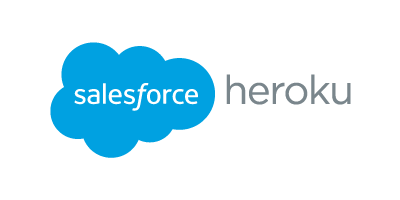
Heroku is a powerful platform for building customer-focused apps integrated with Salesforce CRM data. Acquired by Salesforce, this move enhanced Salesforce’s offerings, expanding app and data possibilities for businesses. The acquisition aligns with Salesforce’s strategy of investing in innovative software, adding significant value to its market and client base. With Heroku now seamlessly integrated into Salesforce, businesses can easily connect CRM data with customer-facing services, ensuring a secure, efficient, and simplified workflow. The combination of Salesforce and Heroku has made their integration process more streamlined and user-friendly than ever.
The focus with apps is on streamlining the communication between your business systems, whether that’s front-facing customer interfaces or behind-the-scenes databases. Apps produced on Heroku can connect systems and programmes together that are not naturally compatible, allowing you to bypass the limitations imposed by the architecture of Salesforce itself.
With Heroku, developers can work in their preferred programming language on a platform that has a ready-built infrastructure. Developers are no longer required to develop that infrastructure first, which is a time-intensive process. Heroku provides around-the-clock maintenance, patching, and support, meaning that your developers do not have to be on-call to resolve issues.
With all of this and more in place, the Salesforce development company can concentrate on developing those business-critical apps that will revolutionise your business processes.


Heroku provides businesses with several significant advantages for building, scaling, and managing customer-centric applications integrated with Salesforce. These benefits span five critical areas: developer experience, data management, add-ons, scalability, and security.
In addition to these core benefits, Heroku’s seamless integration with Salesforce makes it easier for businesses to link CRM data with their apps. This integration allows organizations to manage customer data, track interactions, and deliver personalized experiences more effectively. Heroku provides a unified solution for app development, data management, and CRM integration, empowering businesses to innovate and scale quickly while maintaining security, efficiency, and high performance across the board.

Heroku is a powerful platform for building customer-focused apps integrated with Salesforce CRM data. Acquired by Salesforce, this move enhanced Salesforce’s offerings, expanding app and data possibilities for businesses. The acquisition aligns with Salesforce’s strategy of investing in innovative software, adding significant value to its market and client base. With Heroku now seamlessly integrated into Salesforce, businesses can easily connect CRM data with customer-facing services, ensuring a secure, efficient, and simplified workflow. The combination of Salesforce and Heroku has made their integration process more streamlined and user-friendly than ever.

The focus with apps is on streamlining the communication between your business’s systems, whether that’s front-facing customer interfaces or behind-the-scenes databases. Apps produced on Heroku can connect systems and programmes together that are not naturally compatible, allowing you to bypass the limitations imposed by the architecture of Salesforce itself.
With Heroku, developers can work in their preferred programming language on a platform that has a ready-built infrastructure. Developers are no longer required to develop that infrastructure first, which is a time-intensive process. Heroku provides around-the-clock maintenance, patching, and support, meaning that your developers do not have to be on-call to resolve issues.
With all of this and more in place, the Salesforce development company can concentrate on developing those business-critical apps that will revolutionise your business processes.

Heroku provides businesses with several significant advantages for building, scaling, and managing customer-centric applications integrated with Salesforce. These benefits span five critical areas: developer experience, data management, add-ons, scalability, and security.
In addition to these core benefits, Heroku’s seamless integration with Salesforce makes it easier for businesses to link CRM data with their apps. This integration allows organizations to manage customer data, track interactions, and deliver personalized experiences more effectively. Heroku provides a unified solution for app development, data management, and CRM integration, empowering businesses to innovate and scale quickly while maintaining security, efficiency, and high performance across the board.
Copyright © 2025 Briskminds | All Rights Reserved